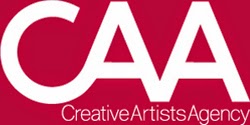Women in Sports - Carly Rosenberg, Creative Artists Agency
The Cornell ILR Sports Business Society is pleased to present our "Women in Sports" series. In recent years, powerful women (led by many Cornell Alumnae) have advanced the role of women in the sports world. We will be featuring the stories of individuals from across the industry, in various stages of their careers, who have made an impact in sports.
Carly Rosenberg is the focus of this week's edition of Women in Sports. Rosenberg is a 2006 graduate of Cornell's College of Agriculture and Life Sciences, where she completed the AEM major. She currently serves as the Sports Business Affairs Coordinator at Creative Artists Agency. Carly was kind enough to speak to the Cornell ILR SBS Blog about her career and much more.
Why did you go to Cornell?
I decided that I worked hard in high school and if I could get into a good school I should go there. I ended up applying early and I thought I owed it to myself.
What did you study at Cornell? Did you know you wanted to work in sports while at Cornell?
I was an AEM major and I mostly studied marketing. I always knew I wanted to do entertainment. But I didn’t necessarily know I wanted sports.
Could you describe your current role?
I work at Creative Artists Agency. I’m in a lawyer the sports legal department. I’m called the Coordinator. I help to coordinate the work between the four lawyers and other members in our group. On top of being the coordinator for the sports legal department, I also have other responsibilities in the group as well as work I get work from other agents in different departments.
How did you get to where you are today?
I went to Brooklyn law school and graduated during the worst economic downturn in recent history. I was applying to every job possible in legal or entertainment. I applied to Creative Artists and when they called me they asked if I was interested in a position. It was all about applying at the right time.
How has the industry changed since when you started?
I think the industry has become more about big agencies. It used to be all about one-on-one agent experiences, so that everyone had their one agent, but now it is really shifting to more a team atmosphere. I think people are excited to be represented by CAA because of all the opportunities here.
Do you have any advice for students, particularly young women, who would like to work in sports?
I think the biggest thing is always networking and connections. Although it didn’t help me get to where I am, I think it's very helpful because if you get the opportunity to work in an internship you can see if you like the field or not. Another piece of advice is to follow sports. I know so much more now about sports than I ever did. I think it helps a lot to keep up with what’s going on.
What's your favorite part about working in sports?
My favorite part about working in sports is that it’s male dominated industry and I like the idea that it’s not necessarily what you expect a women to be doing. I like that women can be knowledgeable about sports. I like a strong woman who can hang with the guys and who knows sports.
What do you most miss about your time at Cornell?
I do not miss the weather! But I do miss Cayuga’s Waiters and the vegetarian bagel from CTB!
I do not miss the weather! But I do miss Cayuga’s Waiters and the vegetarian bagel from CTB!
Labels: Agency, Alumni, CAA, Carly Rosenberg, Women in Sports, ZForster




